
Amirkabir Publication Institute
Iran’s biggest publication house which was confiscated.
In Search of Illumination
Documentary / 87 min / Researcher, Writer, Producer and Director
Synopsis
A historical recount of the foundation, establishment, and expansion of ‘Amirkabir Publication Institute’. This publication house was considered Iran’s most influential and biggest publication institute in the 1940s-80s years. The film looks at the life of the late Abdorrahim Jafari, Amirkabir’s founder, and the institute’s sad ending, early 1980s when the revolutionary court orders the institute to be confiscated. Mr Jafari was then stripped of the institute’s ownership and forced to retire.
The documentary ‘In Search of Illumination’ is narrated by Abdorrahim Jafari and reviews different periods of his life and his activities in the Amirkabir Institute. The film includes interviews with: Simin Behbahani, Bahman Farzaneh, Poori Soltani, Ehsan Naraghi, Parviz Shahriari, Leili Golestan, Mohammadreza Jafari, Ebrahim Haghighi, Ali Dehbashi, Bahaedding Khorramshahi, Kamran Fani, Abdolhossein Azarang, Mahdokht Moein, Reza Yekrangian, Mohammad Bahrami, and Davood Moossaei.
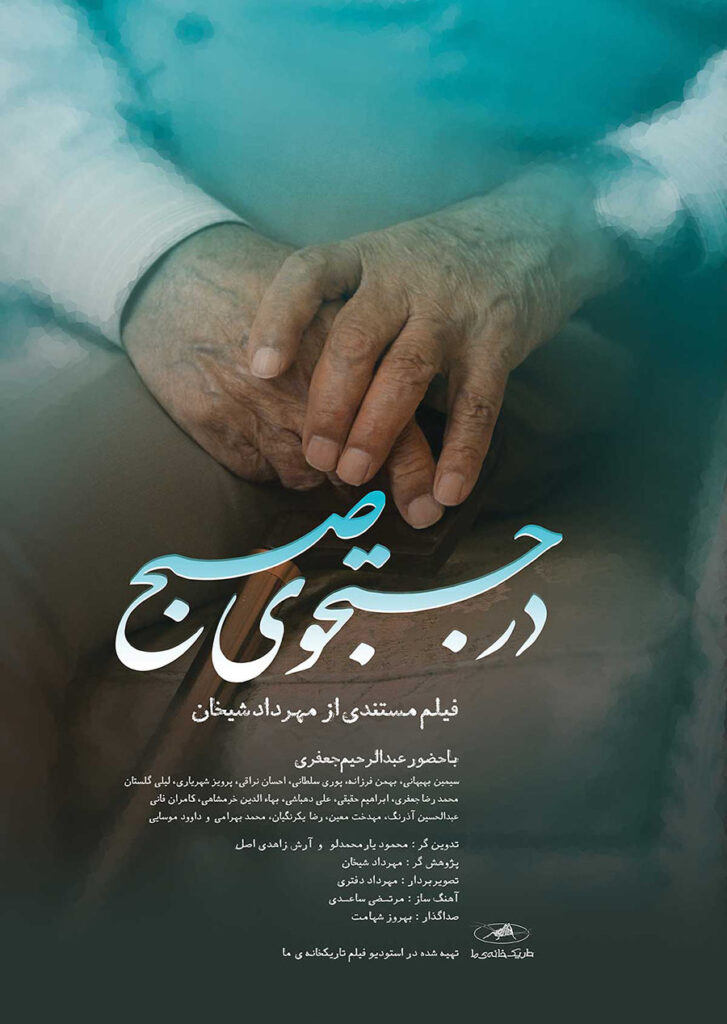
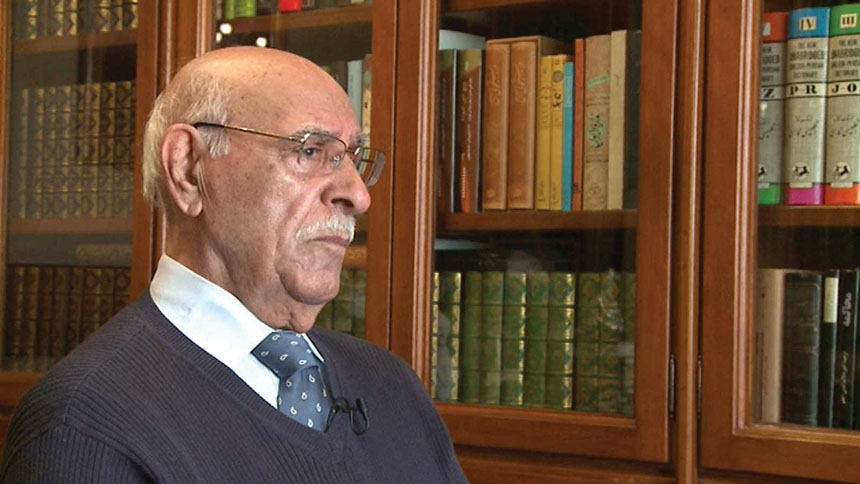
Abdolrahim Jafari
Founder of Amirkabir Publication Institute
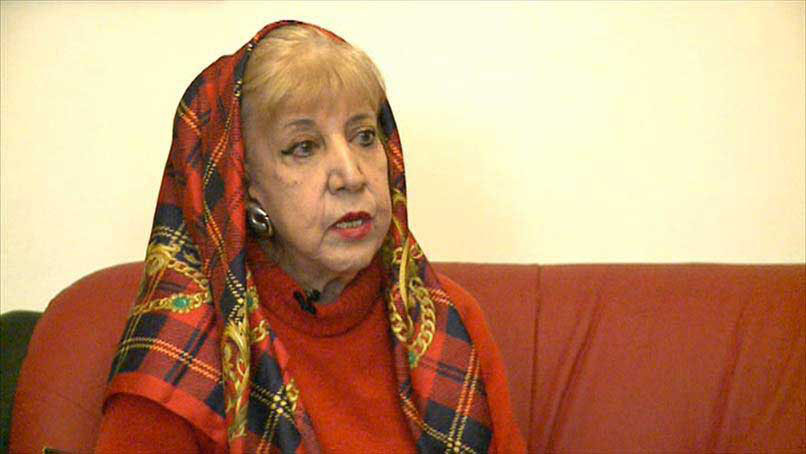
Simin Behbahai
Iranian contemporary poet
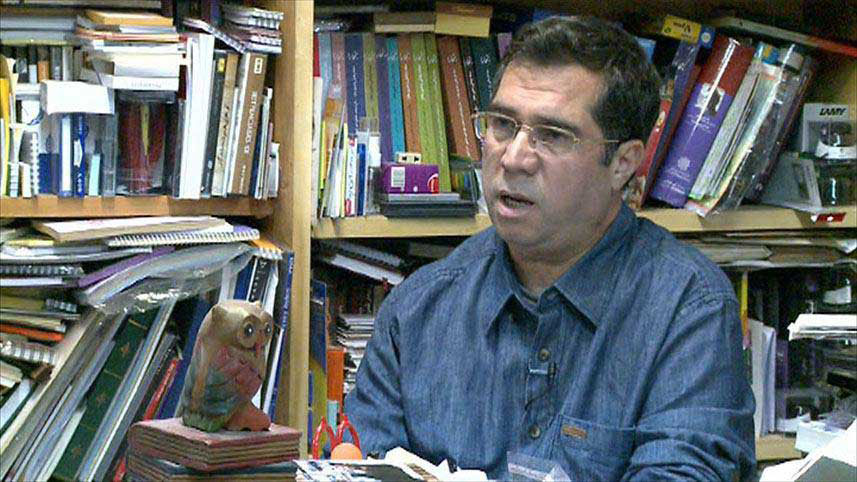
Ali Dehbashi
Writer and journalist
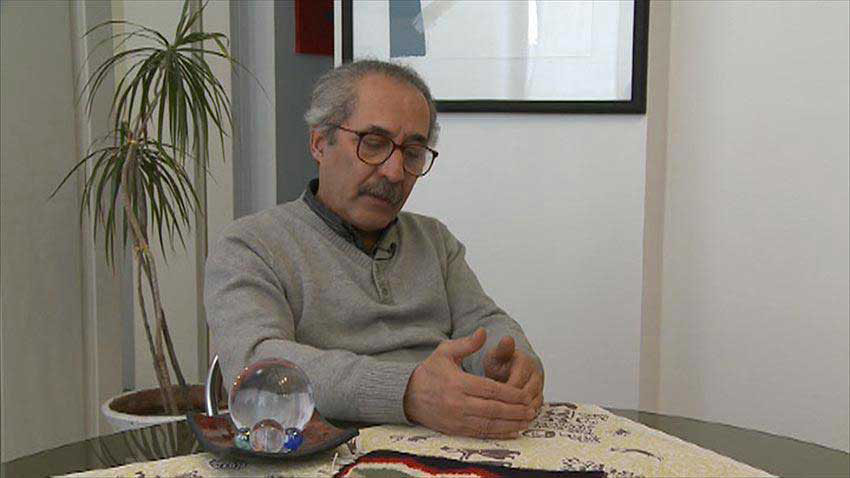
Ebrahim Haghighi
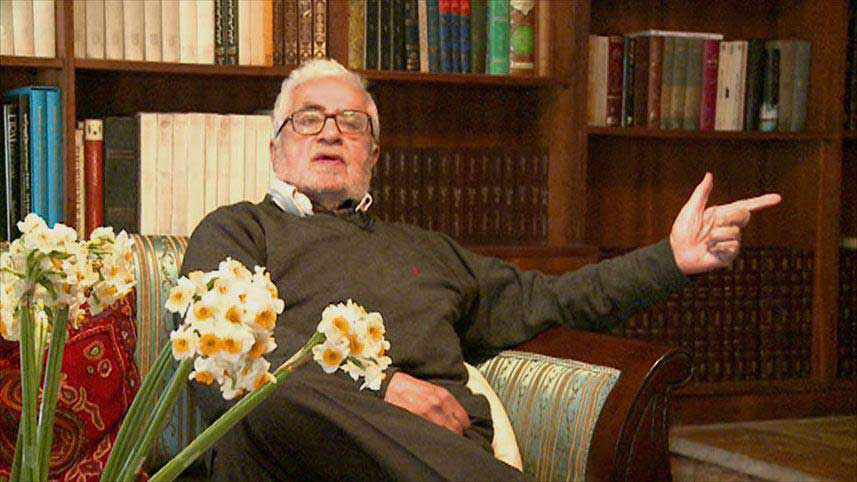
Ehsan Naraghi
Iranian sociologist, writer
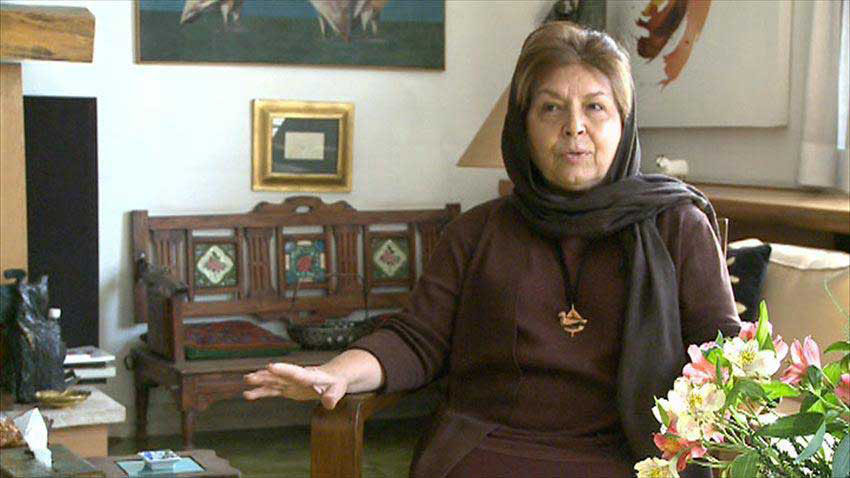
Lili Golestan
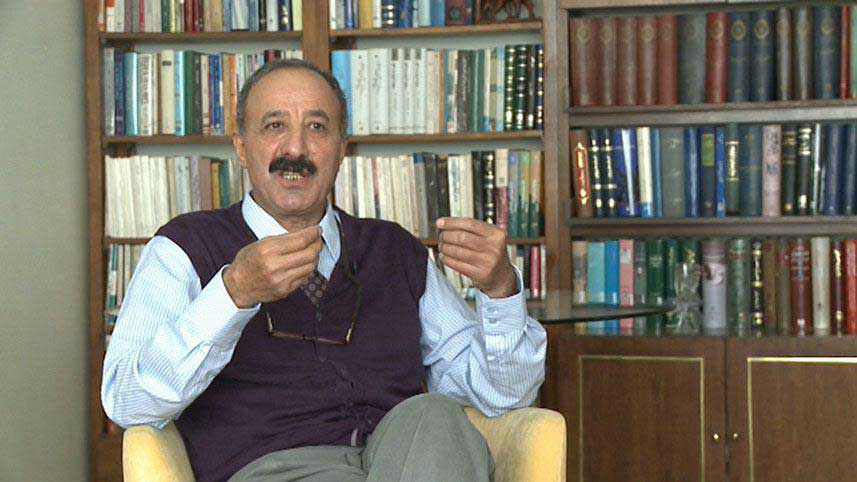
Abdolhossein Azarang
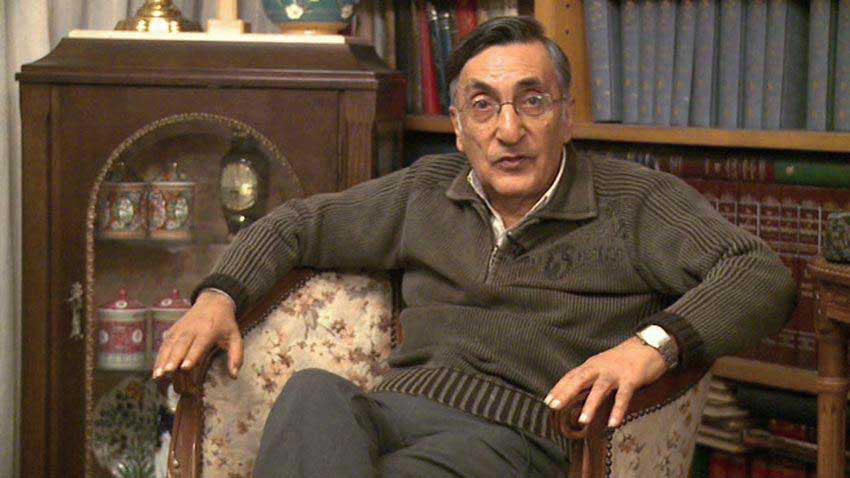
Kamran Fanni
Author and translator
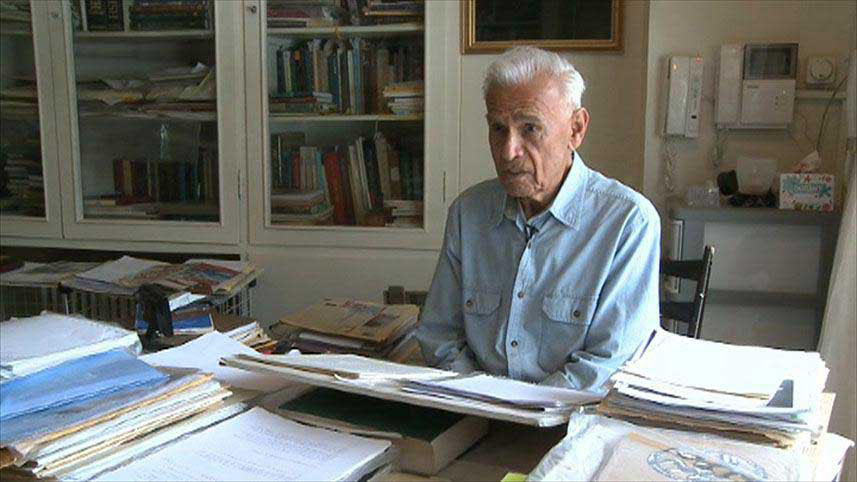
Mohammad Bahrami
Graphic designer and painter
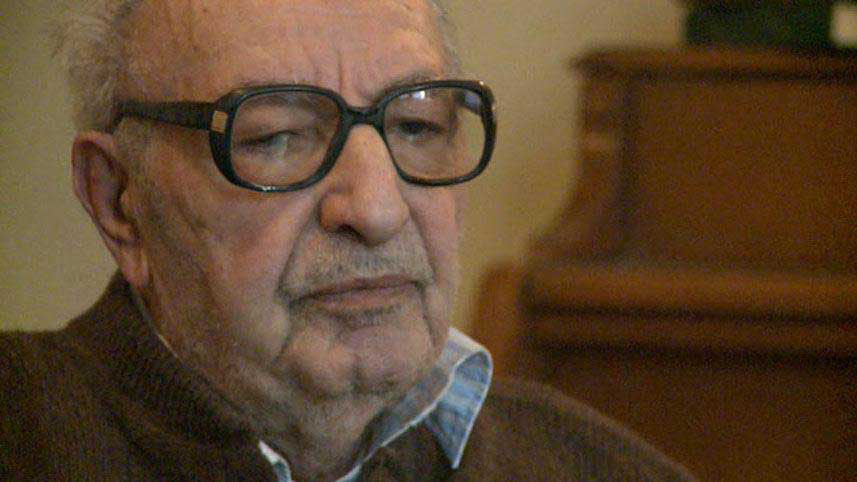
Parviz Shahriyari
Mathematician, translator and writer
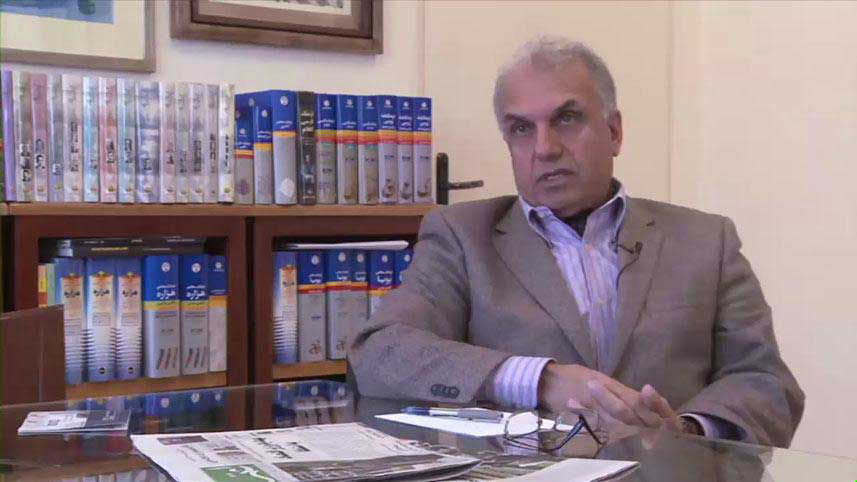
Davood Mousaee
Book publisher
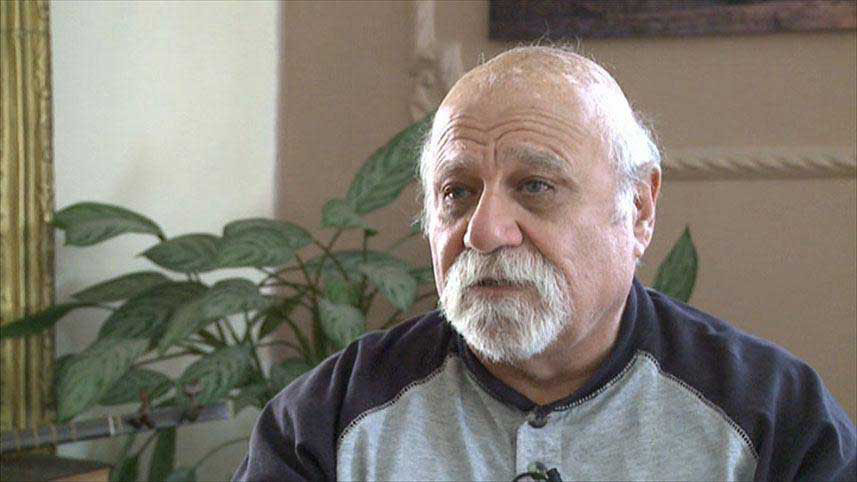
Reza Yekrangiyan
Book publisher
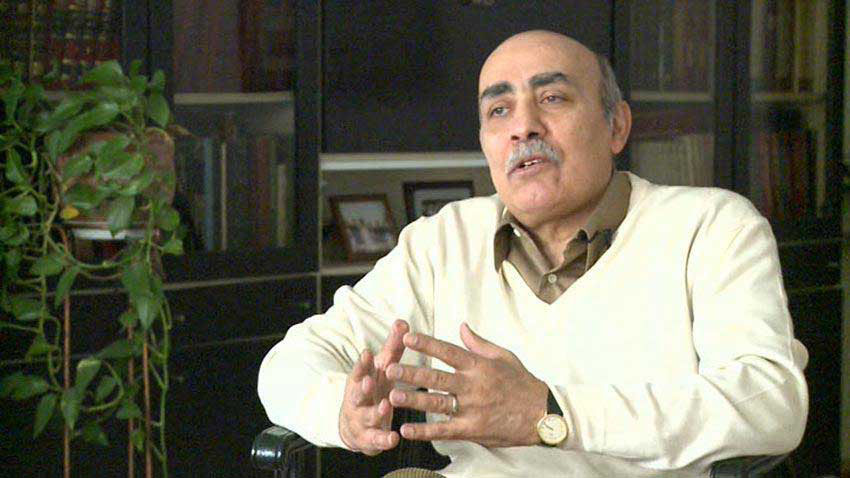
Reza Jafari
Book publisher and son of Abdolrahim Jafari
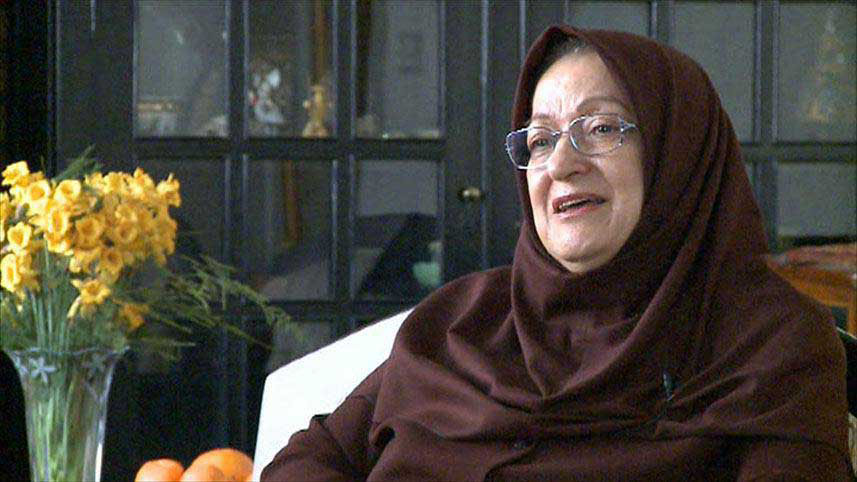
Mahdokht Moin
University professor
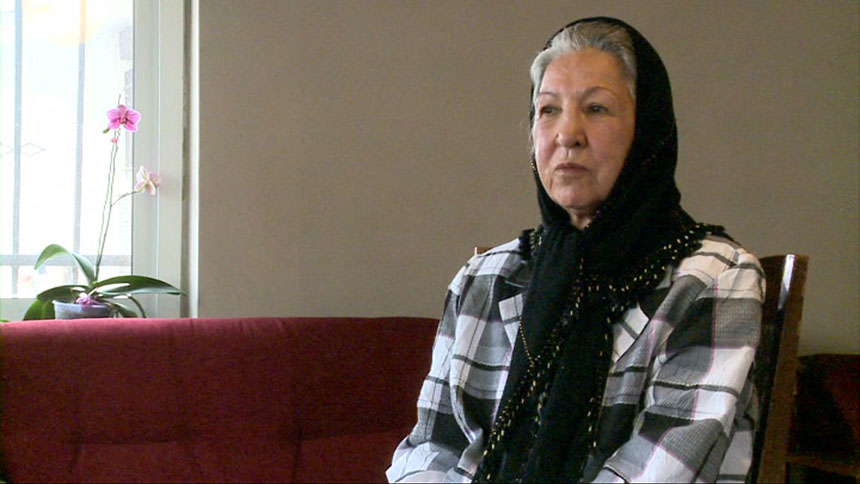
Poori Soltani
Librarian
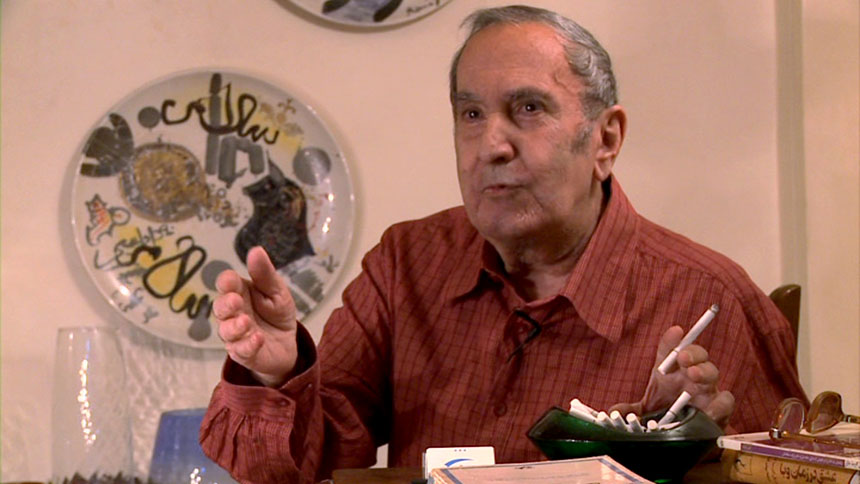
Bahman Farzaneh
Author and translator
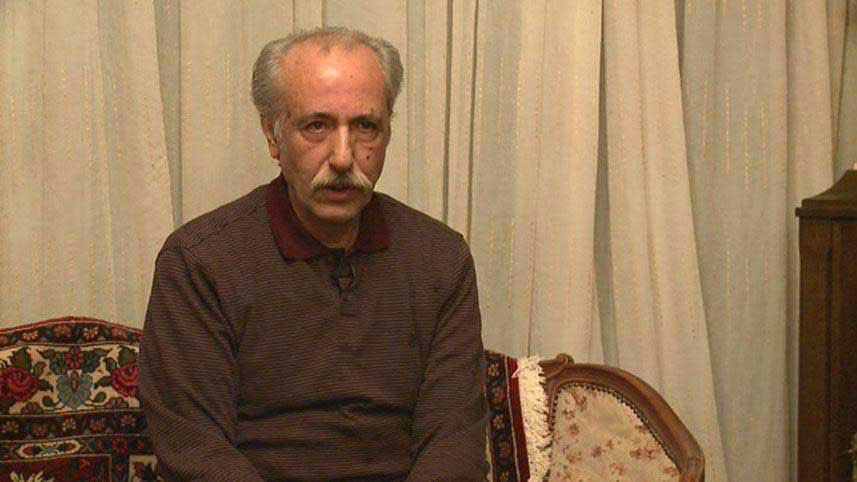
Bahaeddin Khorramshahi
Author and translator
Director’s Notes
It was a day in November 2008 when my phone rang. On the other side was an unfamiliar and yet so lively voice introducing himself as Abdorrahim Jafari. The name rang a bell on my mind, but before I could recognise him, he went on and said he wanted a documentary made about his life. He told me about himself the Amirkabir Publication Institute in that very short conversation. He asked for my office address to send me the two volumes of his memoir, ‘In Search of Illumination’. Our conversation ends. I hang up while a storm has been formed in my mind, of people, books, events, and early ideas for the film.
A few hours later, I find the two volumes on my desk. On the inside of the first volume’s cover, he’s written me a message and dated it November 19, 1998. I can still remember how kind he was. It was exactly the day Amirkabir Publication Institute was founded 59 years earlier.
Abdorrahim was born in Tehran in a very important part of our history in one of the final years of the Qajar era. Like all the other residents of the city, he was exposed to political and social events of the time. He was still a baby when Reza Khan sat on the throne.
Taghi Jafari’s childhood began with work. He was born in a poor family. He hadn’t hit puberty age when he began working as a labourer in a print house. These years coincided with the two approaches of progressivism: governmental from above and post-Constitutional social demands from lower and middle classes in the society. After the September 1941 events, these demands became socio-political and justice-seeking. The generation Abdorrahim Jafari belonged to therefore became the main representatives of this new current. They played a more vital role in Iranian society in the next decades.
Abdorrahim Jafari owes an important share of his perfectionist mindset to these events. This culture and viewpoint have been one of the most important factors in the progression of Amirkabir since the very beginning.
Abdorrahim was always instinctively looking for a point of redemption. He had realised what his society needed and was looking for a solution. His efforts, not just as a publisher, but also as a social pioneer, were to provide some space for authors and newcomer writers, poets, translators, artists and even editors, so they could create new and distinguished works. This way of management in Amirkabir and the cultural and social background in the 1960s and 1970s in Iran, gave the Institute a status beyond just a publication house. The Amirkabir Publication Institute was more than just a successful publisher. It became a vast cultural wave; a wave that used books as a means and played a vital role in enlightening the Iranian society. Some people believe that a part of Iran’s recent changes in the printing industry is because of Amirkabir’s cultural wave. A wave that was inspired by Iran’s contemporary society.
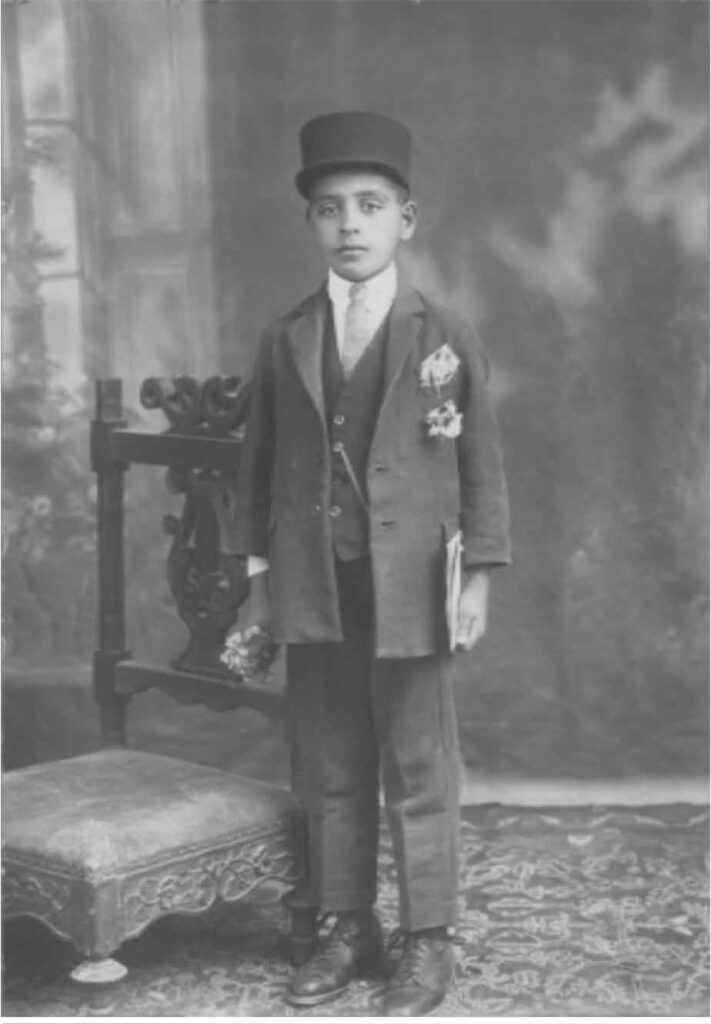
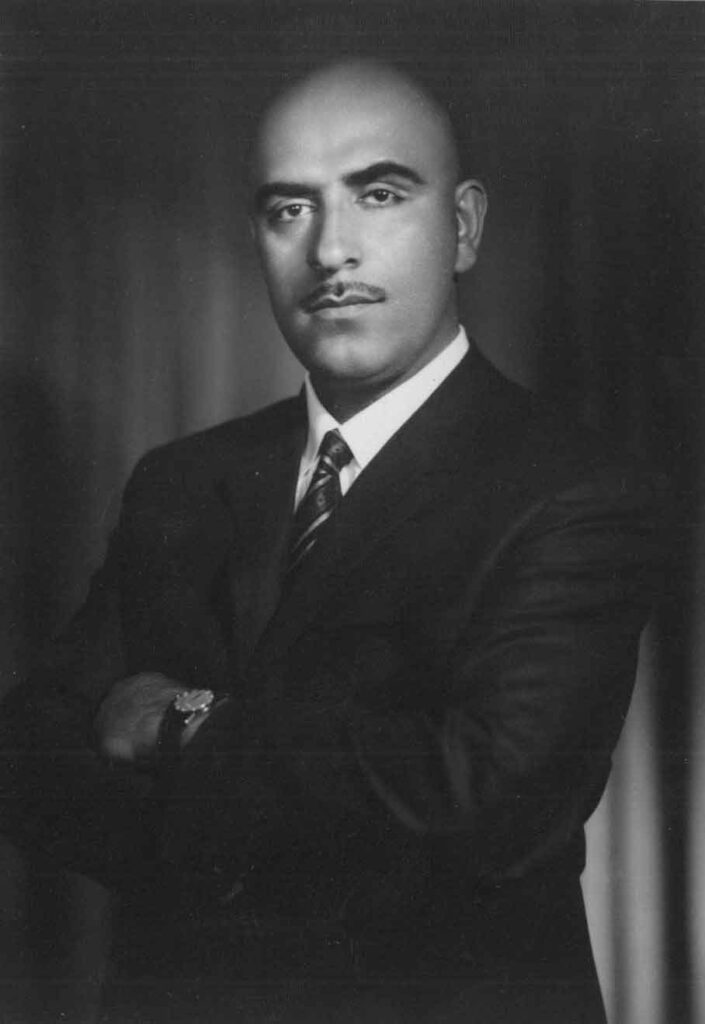
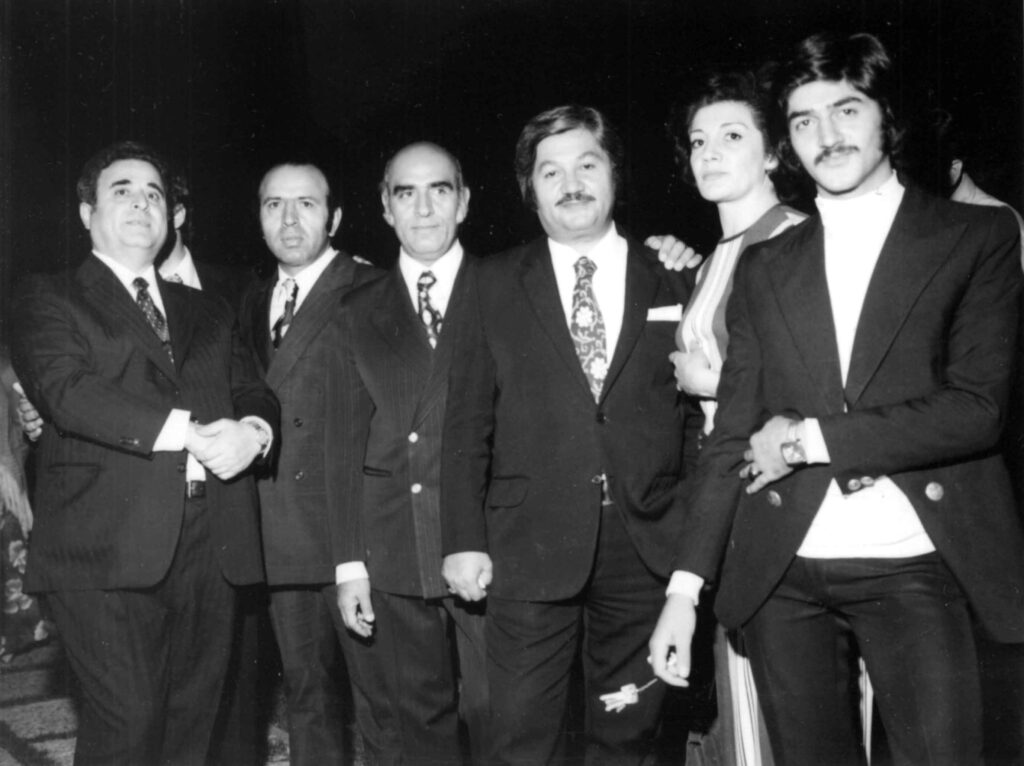
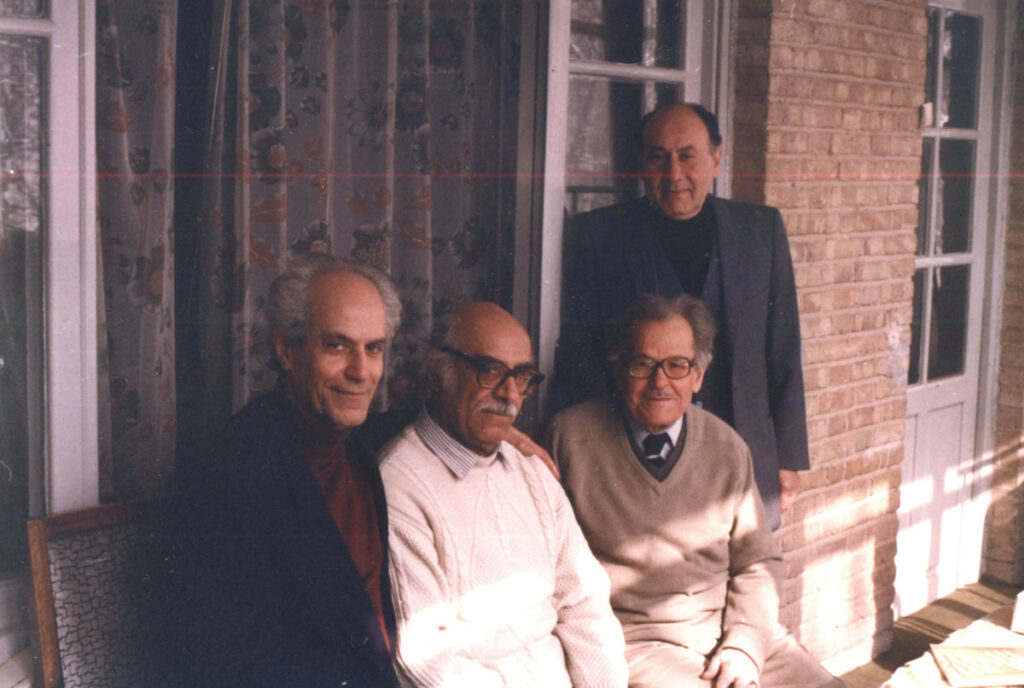
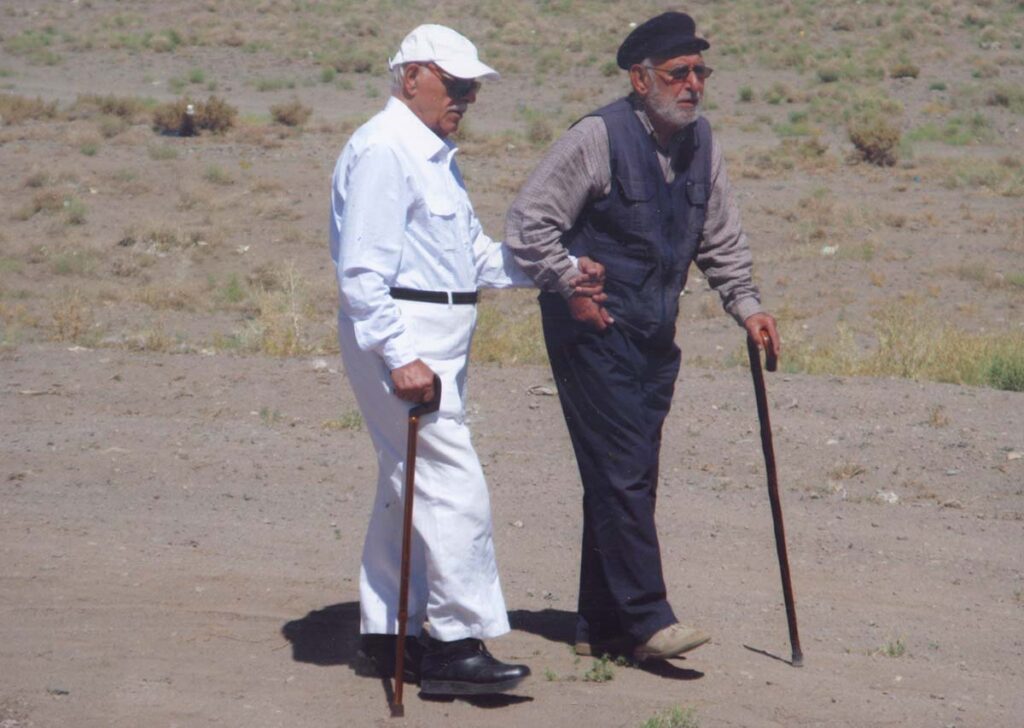
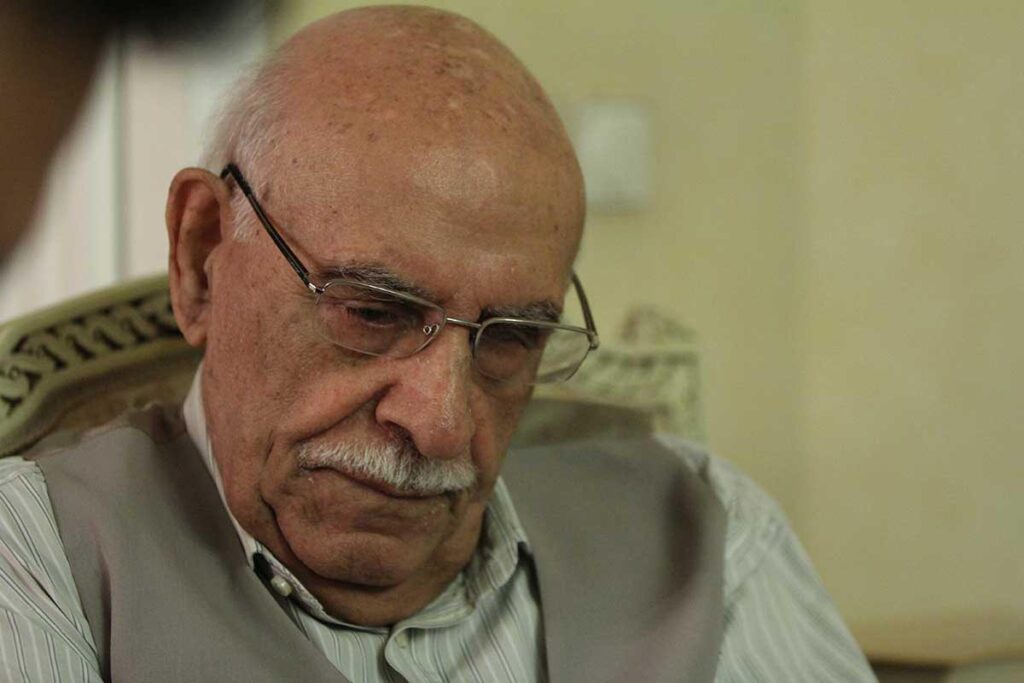
Credits
Director & Researcher: Mehrdad Sheikhan
Director of Photography: Mehrdad Daftari
Editors: Mahmoud Yarmohammadlou, Arash Zahedi Asl
Sound: Behrouz Shahamat
Starring: Abdolrahim Jafari, Simin Behbahani, Bahman Farzaneh, Poori Soltani, Ehsan Naraghi, Parviz Shahriari, Lili Golestan, Mohammad Reza Jafari, Ebrahim Haghighi, Ali Dehbashi, Bahaedin Khoramshahi, Kamran Fani, Abdolhossein Azarang, Mahdokht moin, Reza yekrangian, Mohammad Bahrami, Davoud Moosaie
Producer: Mehrdad Sheikhan
A product of Our Darkroom Film
Technical Info
Orginal Title:Dar Jostojooy-e Sobh ( در جستجوی صبح )
English Title: In Search of Illumination
Running time: 87 minutes
Genre: Historical Documentary
Country: Iran
Language: Farsi
Release Date: March 2014
Screening
-Hashoor online platform – from June, 2019
-Cinematic Institute of Art and Experience – October, 2018 (Iran)
-“Up Art Maan” Art Cultural Institute – September, 2016 (Iran)
-Kaaj Historical House of Kashan – October, 2016 (Iran)
-Iranian Artists’ House – February, 2016 (Iran)
-Image of the year – March, 2015 (Iran)
-Ra’ad Rehabilitation Complex – 2015 (Iran)
-“Bokhara Nightes” Night of Abdolrahim Jafari –July, 2014 (Iran)
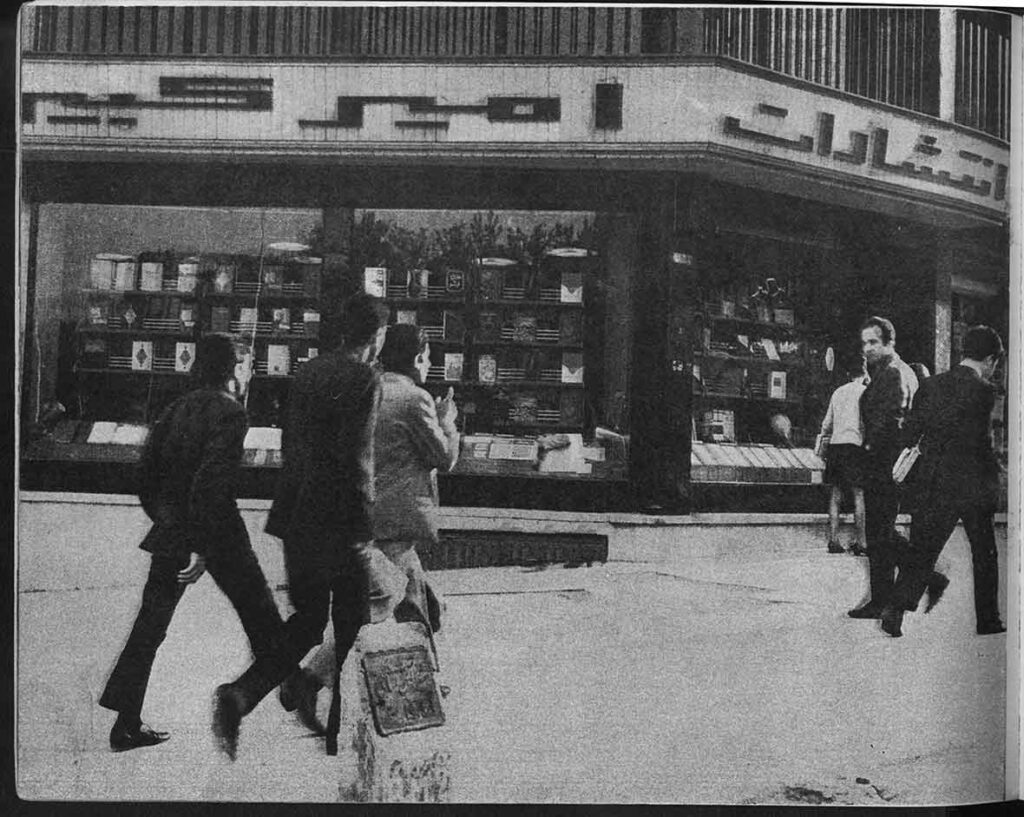
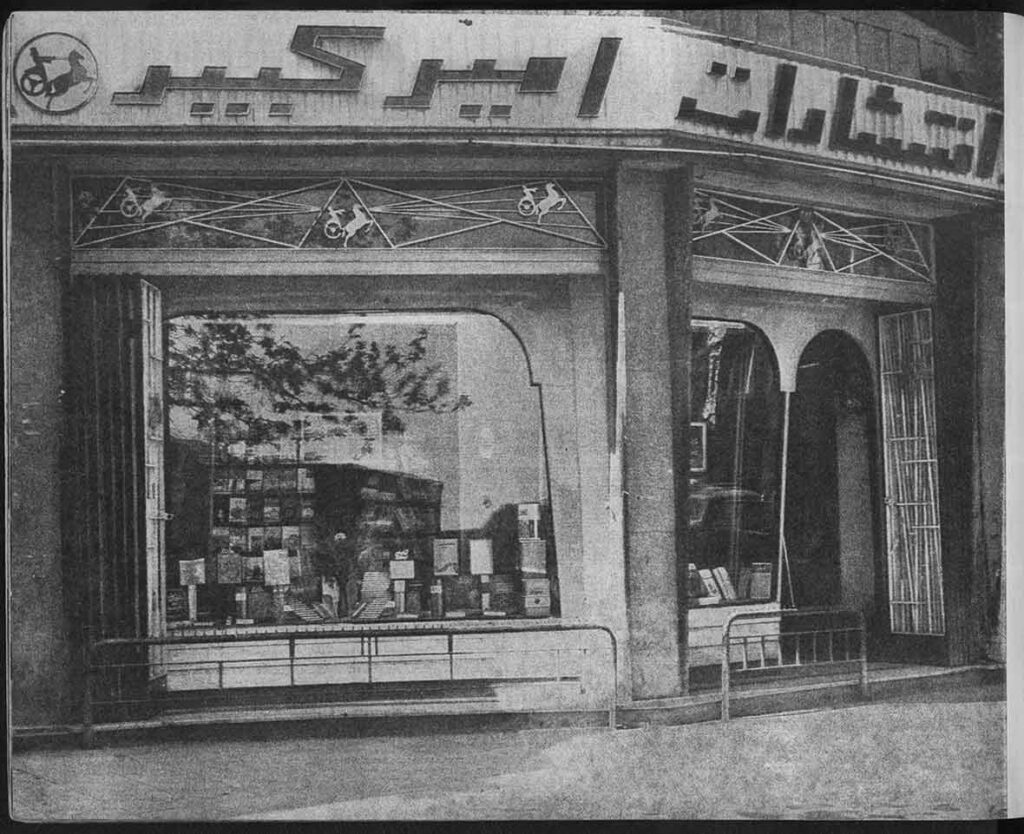
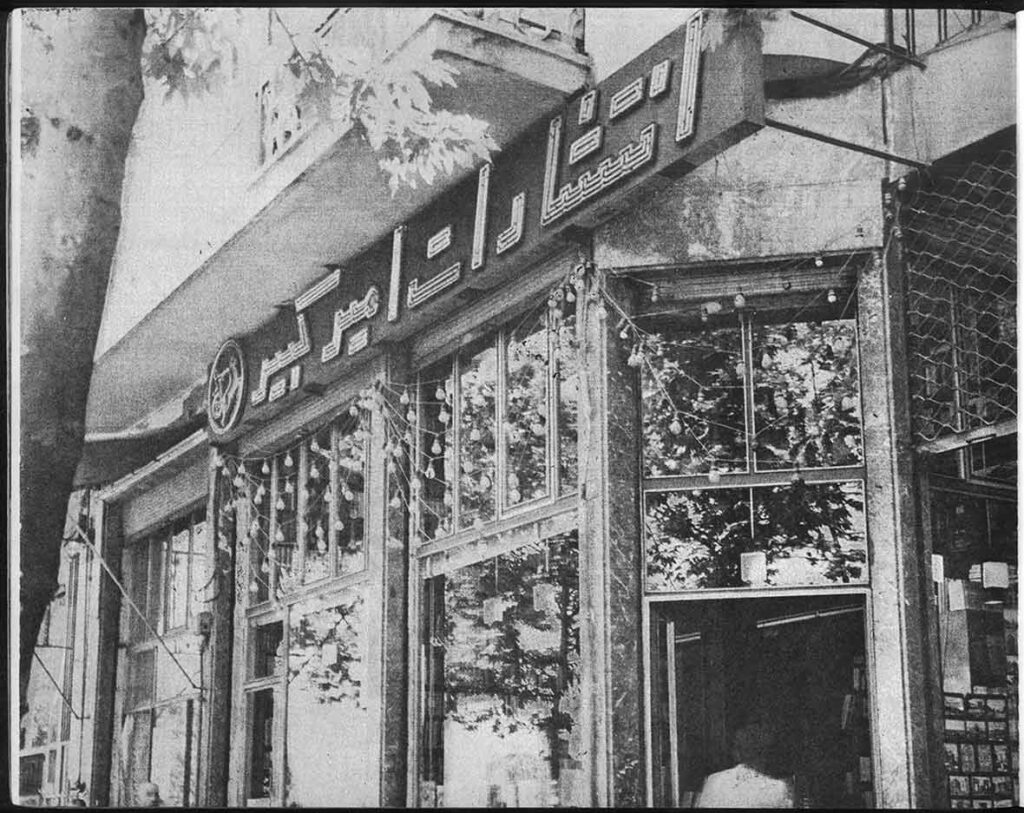
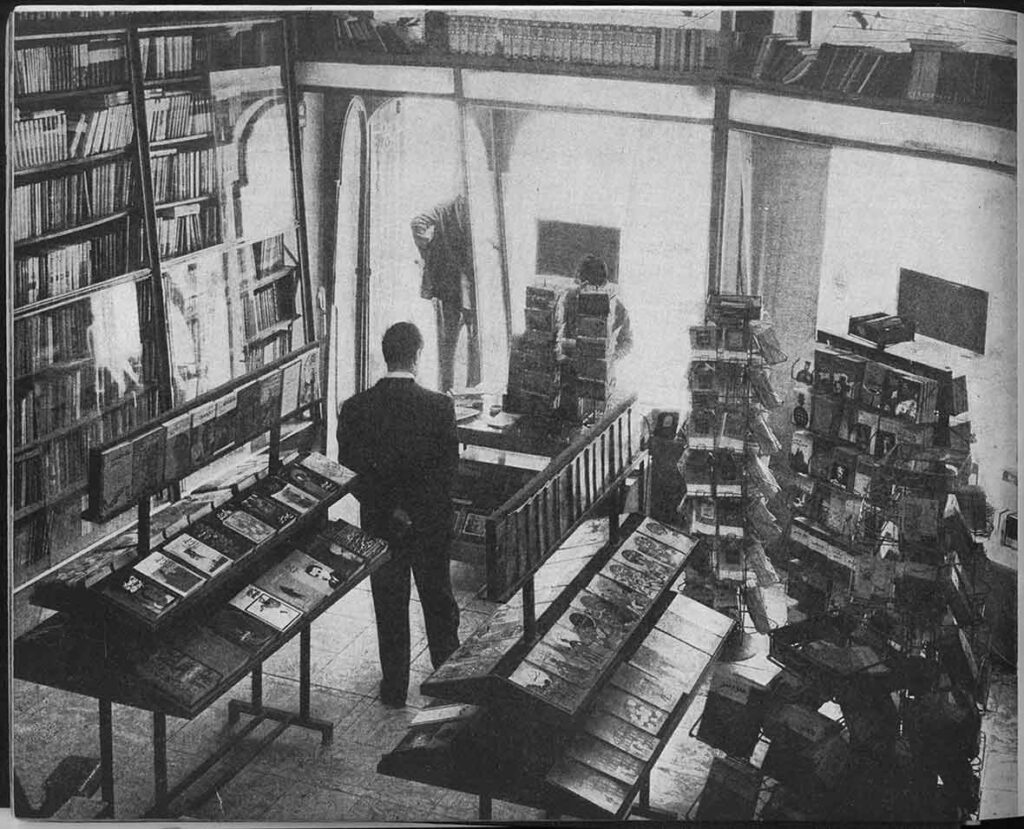
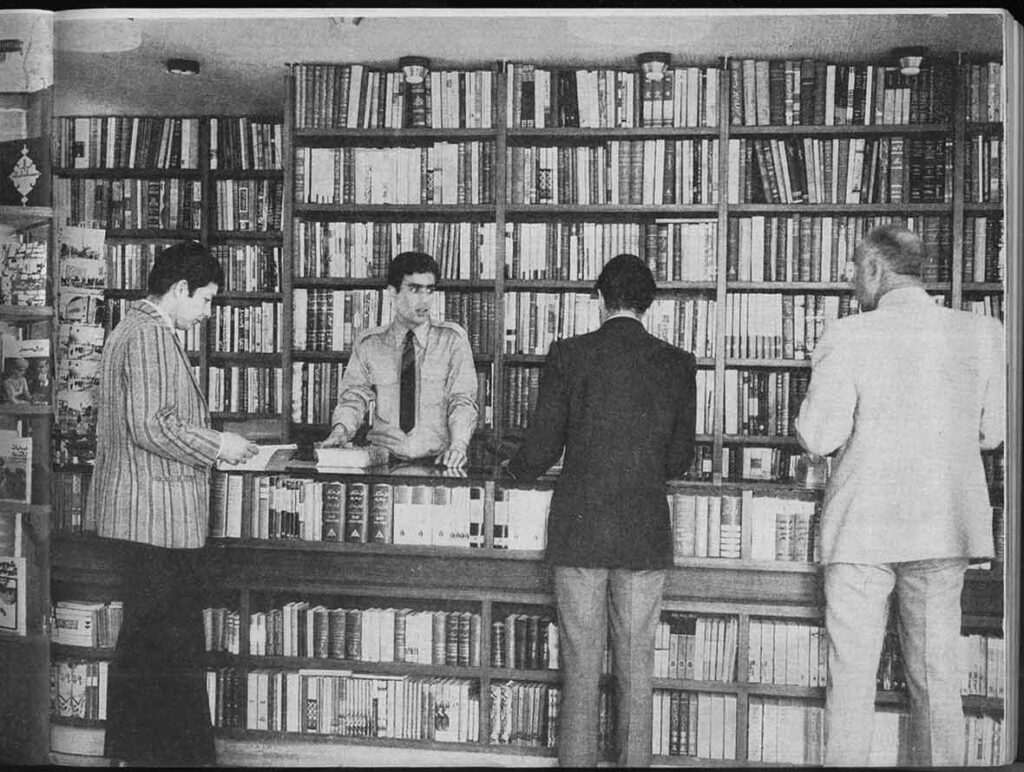
About the Film
The documentary ‘In Search of Illumination’ is based on a book of the same name which is Abdorrahim Jafari’s memoir. It was researched and produced in just over 3 years. The film is about one of Iran’s biggest and most influential publication institutions, Amirkabir, founded by Abdorrahim Safavi in Tehran’s Nasser Khosro Street in 1949.
Abdorrahim Jafari (born on November 4, 1919-Died on October 3, 2015) was born in a poor family in the Bazaar neighbourhood of Tehran. He began working as a labourer in a print factory at the age of 12. Despite the hardships, he always focused on proving himself to the world. In his younger days, he worked at the Scientific Print Factory and gained a lot of experience in production and publication of books. In November 1949, at the age of 30, he inaugurated the Amirkabir Publication Institute. Apart from Abdorrahim Jafari’s strong will, the fact that he enjoyed the company of Morteza Keivan and Monir Jazni, and the political situation of the time all played a role in the establishment of this institute.
From then on, the Amirkabir Publication Institute and its sub-branches such as Gardooneh Tarikh, Parastoo Books, and Jibi Books, published about 2800 titles in Jafari’s 30-year tenure as manager; books in the fields of literature, history, social sciences, philosophy and art, written by pioneering writers, philosophers, researchers, poets, and translators of the time; the likes of Badiozzamān Foroozānfar, Mohammad Moein, Ebrāhim Pourdāvood, Saeid Nafissi, Mohammad Taghi Bahār, Ali Dāshti, Parviz Nātel Khānlari, Zabihollāh Safā, Mojtabā Minovi, Gholāmrezā Rashid Yāsemi, Yahyā Mahdavi, Abdolhossein Zarrinkoub, Abbās Zaryāb, Ehsān Narāghi, Mohammad-Ali Jamālzādeh, Bozorg Alavi, Ahmad Arām, Ebrāhim Younesi, Esmāil Rāeen, Mohammad Jafar Mahjoub, Shojāeddin Shafā, Mortezā Keyvān, Iraj Afshār, Raby Moshfegh Hamadāni, Fereydun Adamiyat, Abolghāsem Anjavi Shirāzi, Mahmoud Tafazoli, Mohammad Ebrāhim Bāstāni Pārizi, Hossein Makki, Amir-Hossein Aryānpour, Zabihollāh Mansouri, Karim Keshāvarz, Monir Jazani, Forugh Farrokhzad, Gholam-Hossein Sa’edi, Sādegh Hedāyat, Amir Hushang Ebtehāj, Ahmad Shāmlou, Nāder Nāderpour, Rahi Mo’ayeri, Hamid Mosadegh, Fereydoon Kār, Shāhrokh Meskoub, Bahman Mohassess, Simin Dāneshvar, Jalāl Āl-e-Ahmad, Esmāil Fassih, Bahman Farzaneh, Mehdi Sahabi, Siavash Kasrai, Nosrat Rahmani, Fereydoon Tonekāboni, Saeed Soltāmpour etc.
The growth of Amirkabir Institute continued till 1979, especially in the 1970s. Despite being constantly under the knife of governmental censorship, it was going to become the most pioneering publication institute in the Middle East and maybe Asia. This prosperity coincided with the 1979 Revolution in Iran and shortly after, Amirkabir Institute was confiscated. Abdorrahim was interviewed by the new government in 1979 and was sent to prison for a while. Eventually all his assets were confiscated by revolutionary institutions at the time. Years later, the issue was raised again when he sued the government to get his assets back. But the courts did not grant him his wish, and his publication house was never returned to him. He lived his final years in forced retirement and kept fighting till the end to get his institution back.
Amirkabir was confiscated, but it has lived on as an influential cultural current, because many other Iranian publishers began to work having been inspired by Amirkabir. The most evident example of such publishers is “Nashre No”. Reza Jafari, son of Abdorrahim, is currently manager and owner of ‘Nashre No’, which is considered one of Iran’s most credible publication houses. He worked along his father in the Amirkabir Institution before the confiscation and the most innovative and effective books of Amirkabir were due to his efforts and vision.
Today, among all Iranians, not least book lovers, Amirkabir is still considered a current-making publication house that best represents Iranian culture.
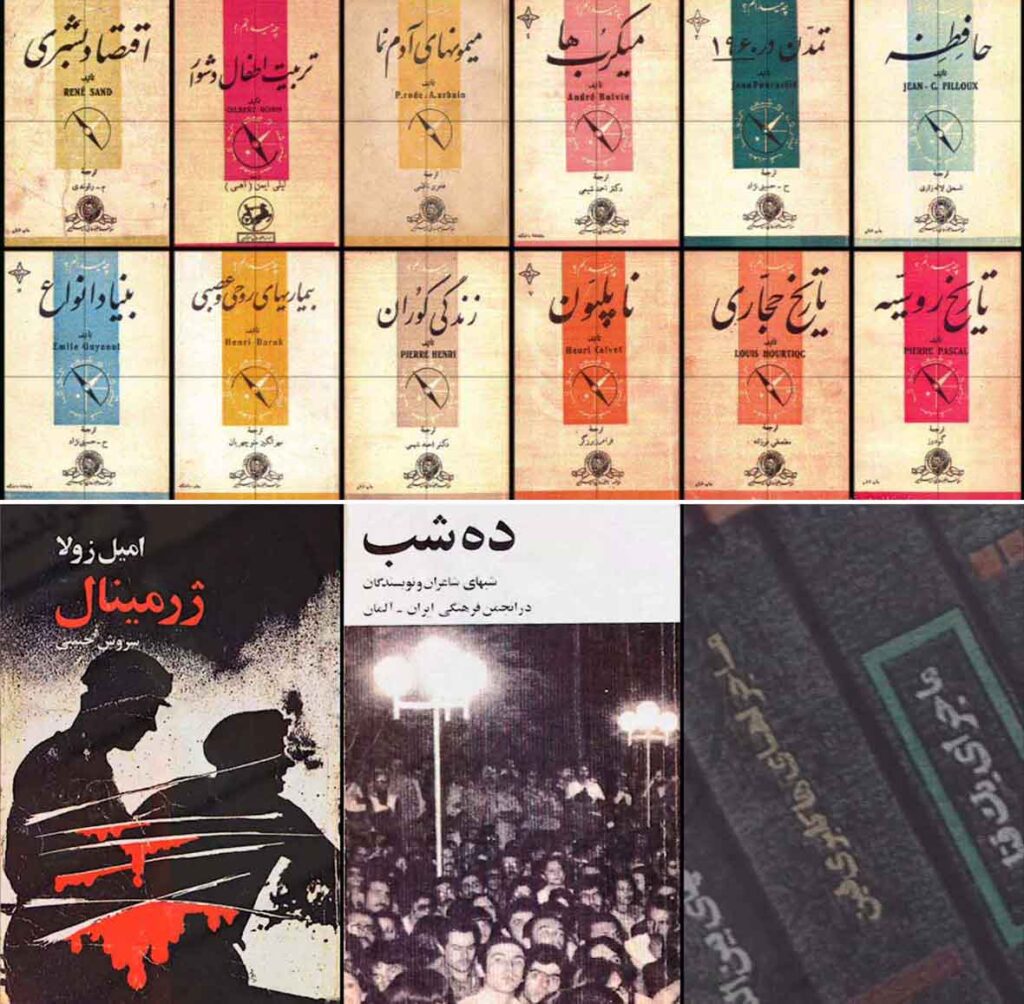
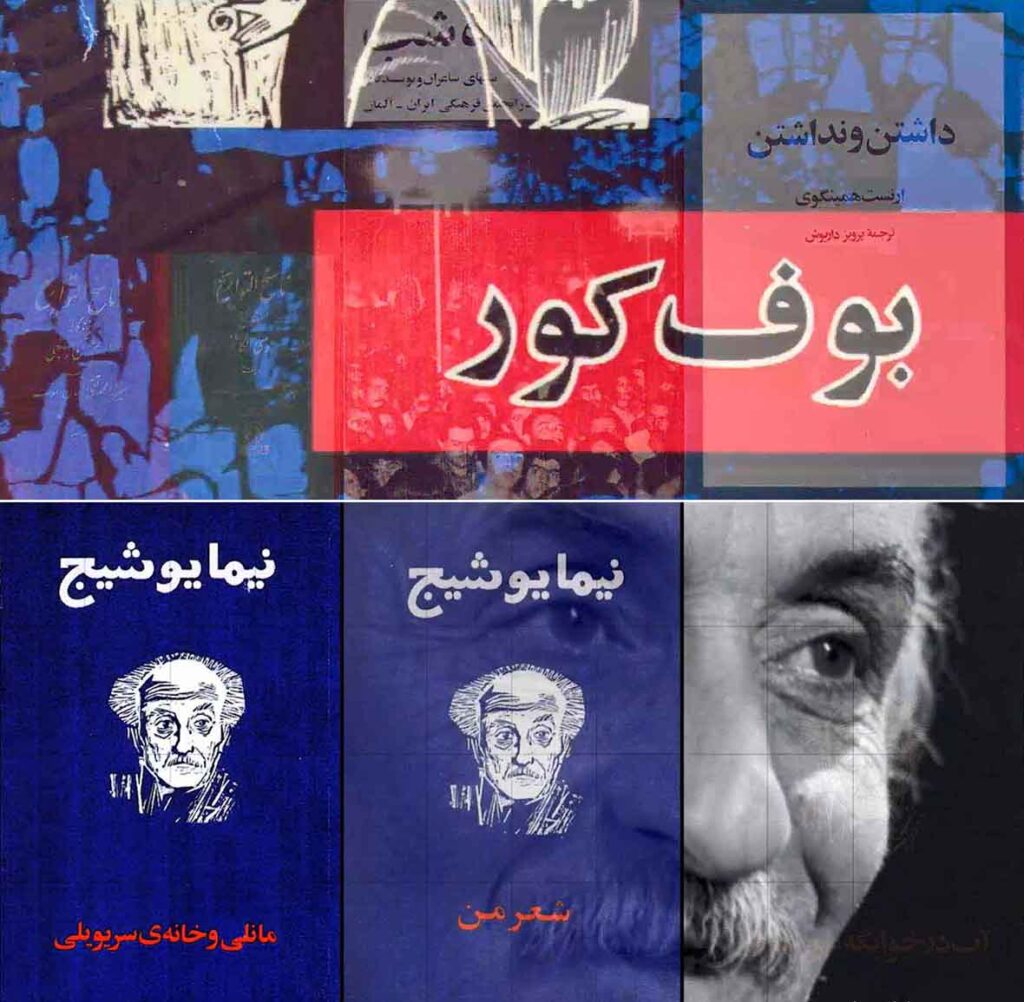
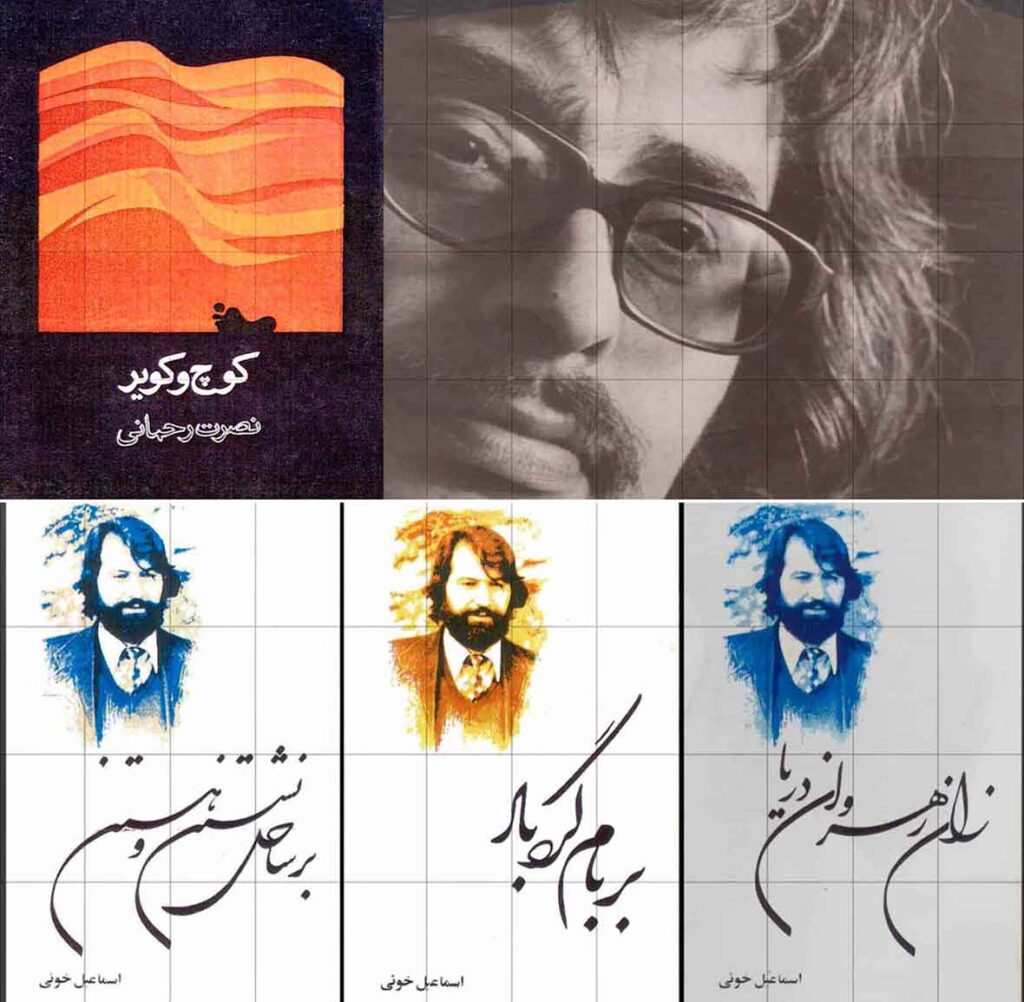
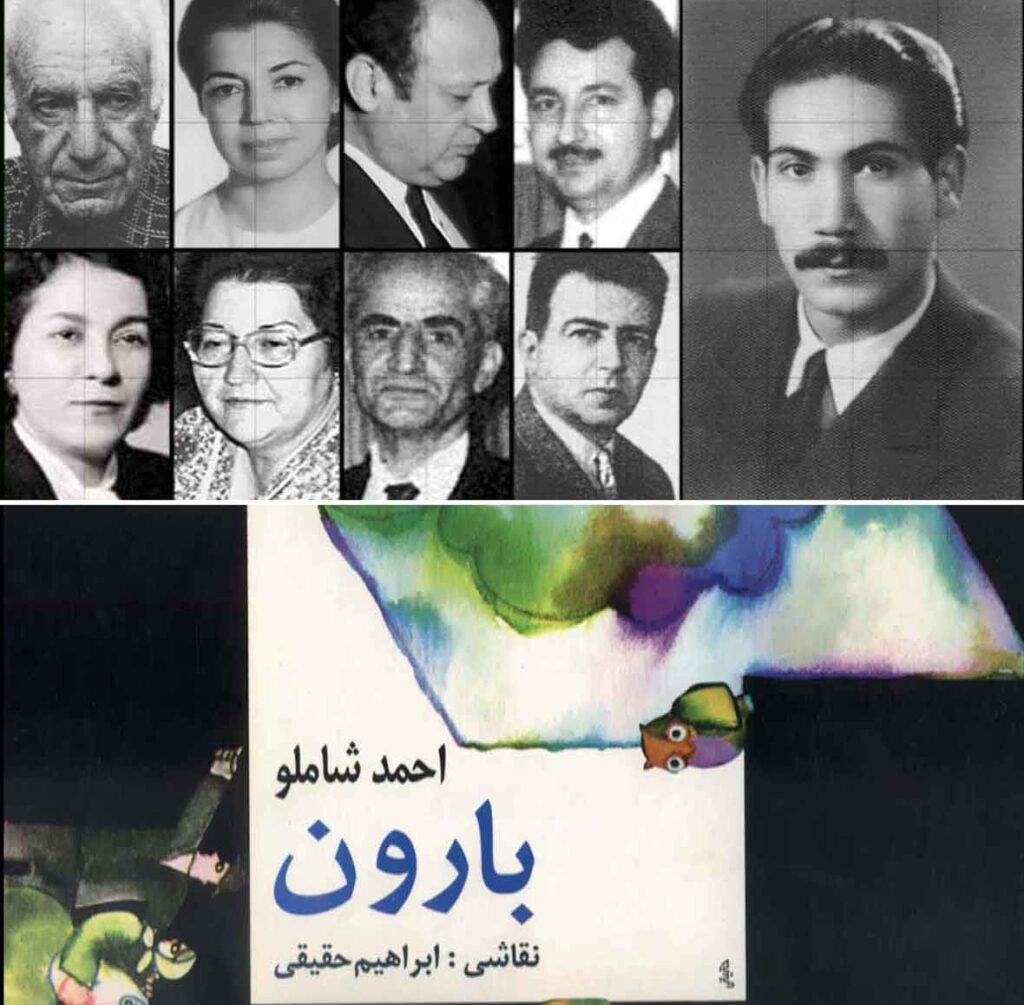
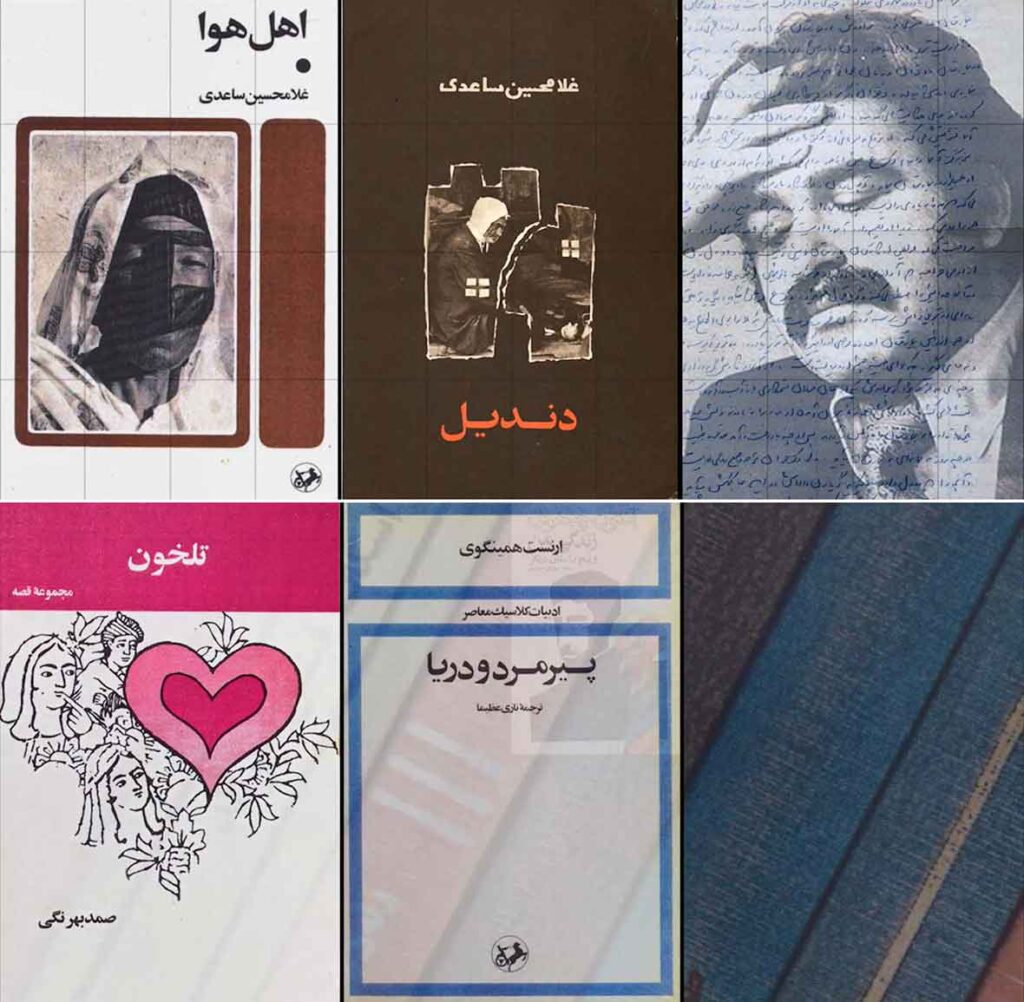
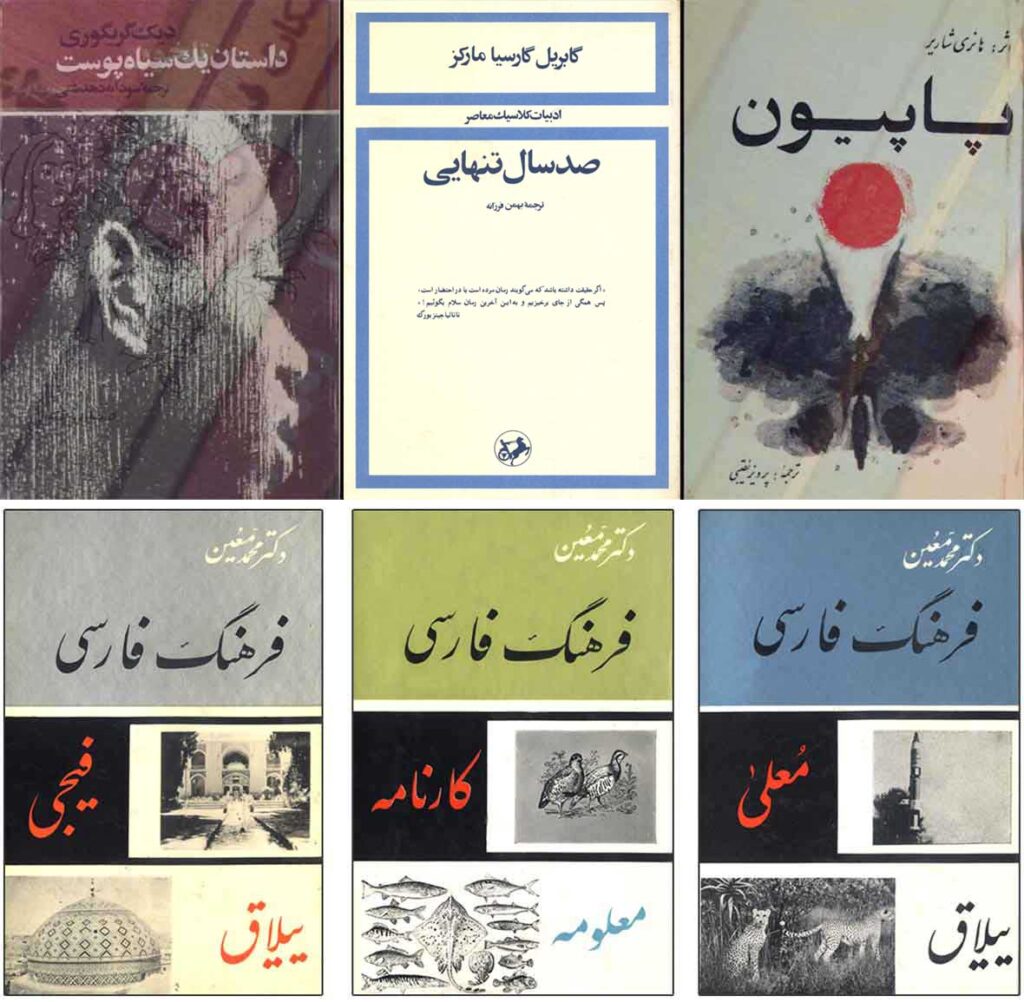
Mehrdad Sheikhan’s interviews
Art and Experience website – December 10, 2018
- Discovering the new meaning of life
Hamshahri Javan weekly – December 1, 2018
the Art and Experience website – October 27, 2018
Bokhara, the culture and art magazine – January 2015
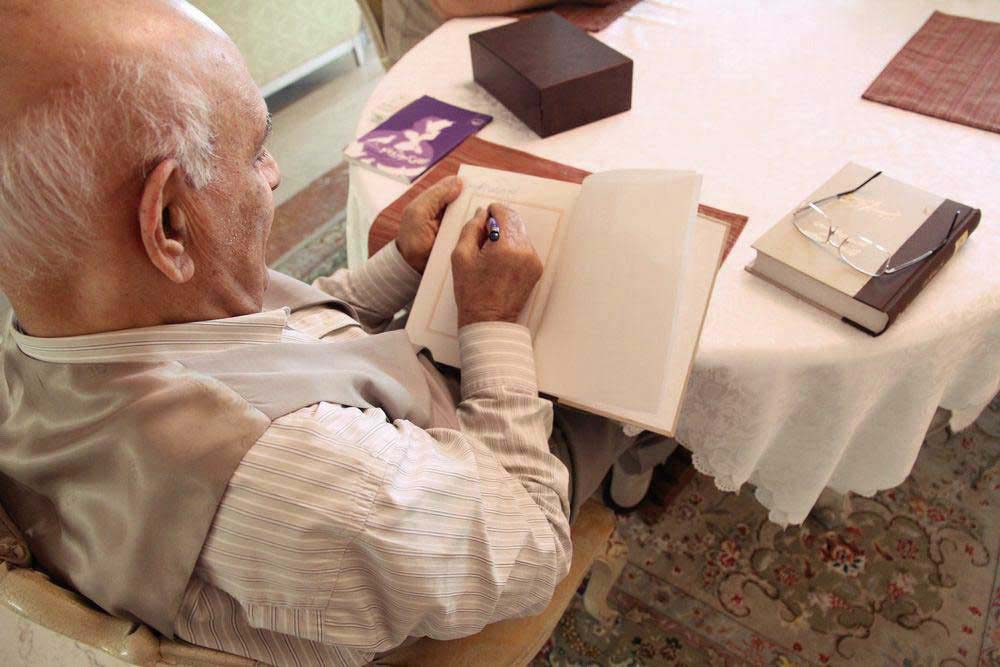
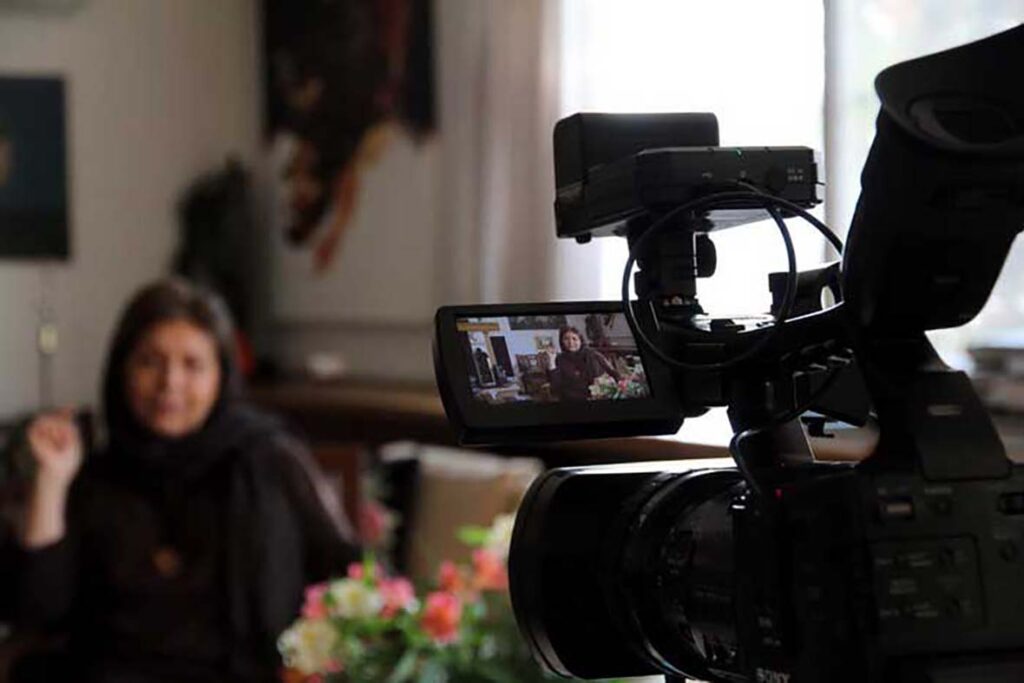
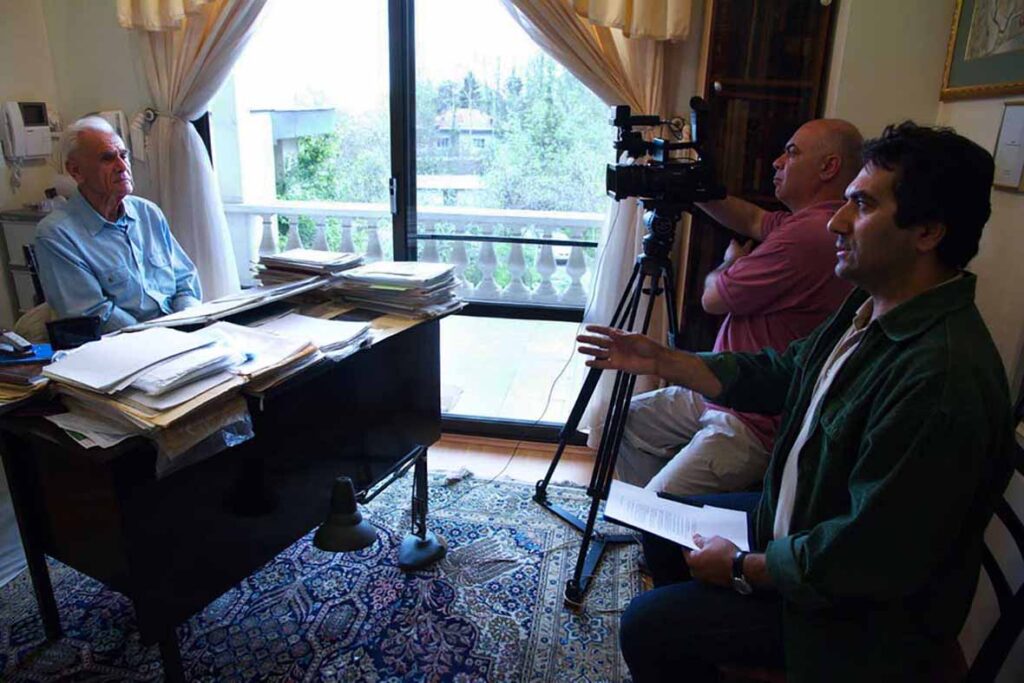
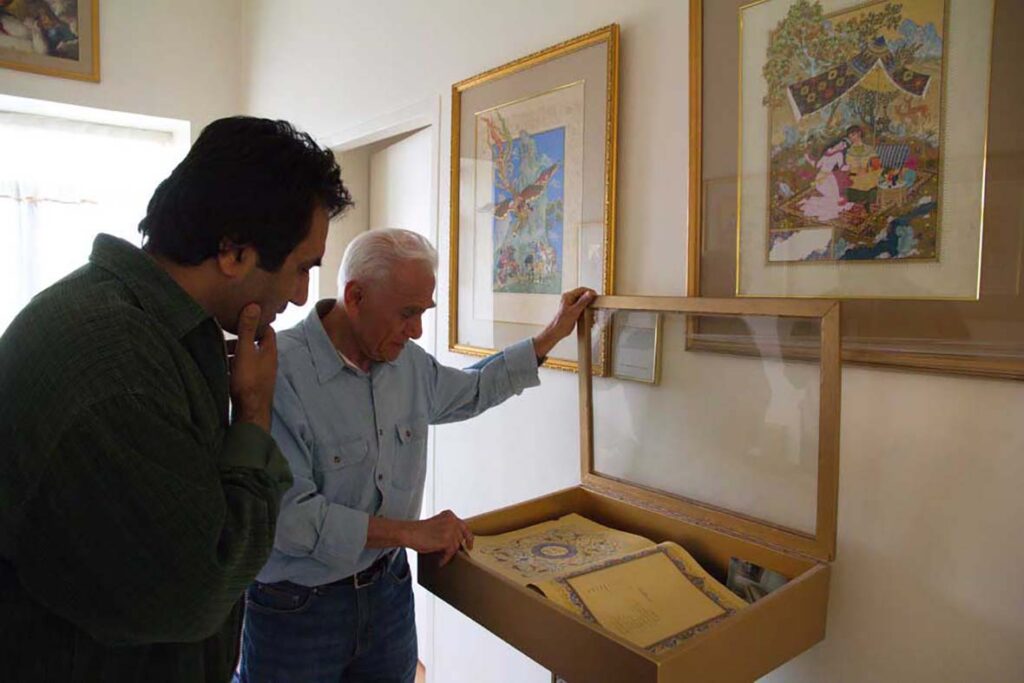
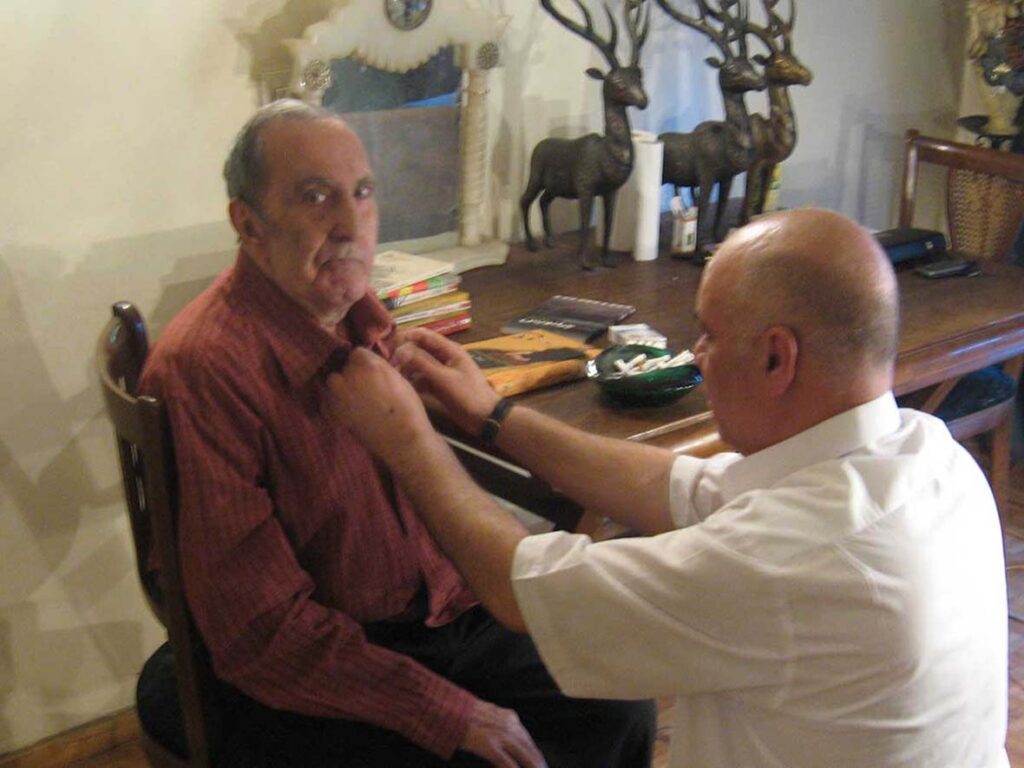
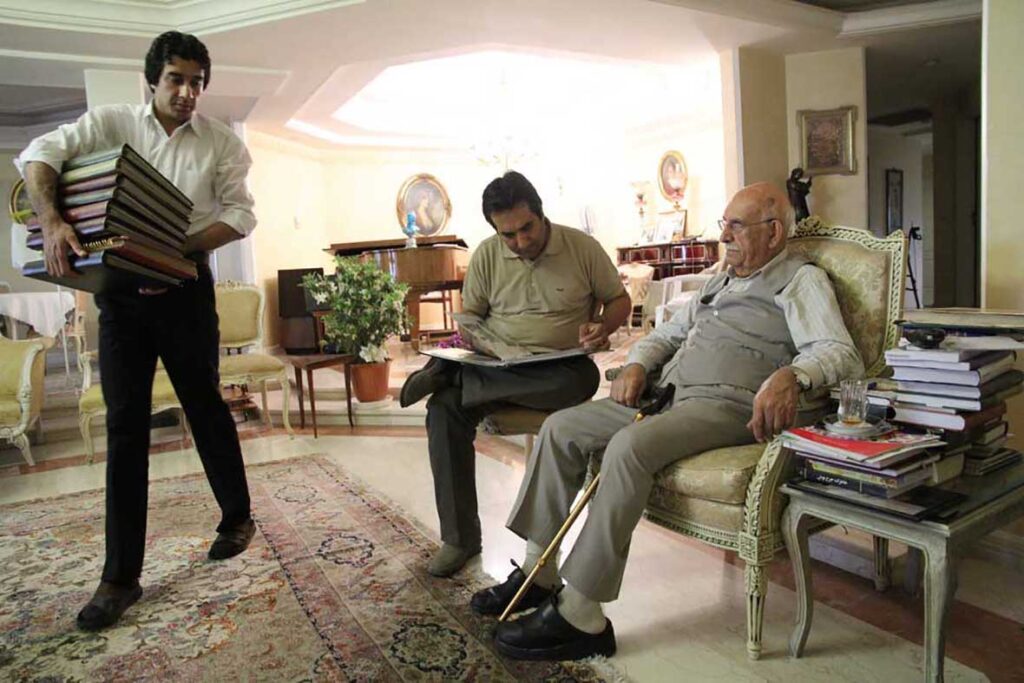

Amirkabir Publication Institute; Iran’s biggest publication house which was confiscated.
In Search of Illumination
Documentary / 87 min / Researcher, Writer, Producer and Director
Synopsis
A historical recount of the foundation, establishment, and expansion of ‘Amirkabir Publication Institute’. This publication house was considered Iran’s most influential and biggest publication institute in the 1940s-80s years. The film looks at the life of the late Abdorrahim Jafari, Amirkabir’s founder, and the institute’s sad ending, early 1980s when the revolutionary court orders the institute to be confiscated. Mr Jafari was then stripped of the institute’s ownership and forced to retire.
The documentary ‘In Search of Illumination’ is narrated by Abdorrahim Jafari and reviews different periods of his life and his activities in the Amirkabir Institute. The film includes interviews with: Simin Behbahani, Bahman Farzaneh, Poori Soltani, Ehsan Naraghi, Parviz Shahriari, Leili Golestan, Mohammadreza Jafari, Ebrahim Haghighi, Ali Dehbashi, Bahaedding Khorramshahi, Kamran Fani, Abdolhossein Azarang, Mahdokht Moein, Reza Yekrangian, Mohammad Bahrami, and Davood Moossaei.


Abdolrahim Jafari
Founder of Amirkabir Publication Institute

Simin Behbahai
Iranian contemporary poet

Ali Dehbashi
Writer and journalist

Ebrahim Haghighi
Graphic designer

Ehsan Naraghi
Iranian sociologist, writer

Lili Golestan

Abdolhossein Azarang

Kamran Fanni
Author and translator

Mohammad Bahrami
Graphic designer and painter

Parviz Shahriyari
Mathematician, translator and writer

Davood Mousaee
Book publisher

Reza Yekrangiyan
Book publisher

Reza Jafari
Book publisher and son of Abdolrahim Jafari

Mahdokht Moin
University professor

Poori Soltani
Librarian

Bahman Farzaneh
Author and translator

Bahaeddin Khorramshahi
Author and translator
Director’s Notes
It was a day in November 2008 when my phone rang. On the other side was an unfamiliar and yet so lively voice introducing himself as Abdorrahim Jafari. The name rang a bell on my mind, but before I could recognise him, he went on and said he wanted a documentary made about his life. He told me about himself the Amirkabir Publication Institute in that very short conversation. He asked for my office address to send me the two volumes of his memoir, ‘In Search of Illumination’. Our conversation ends. I hang up while a storm has been formed in my mind, of people, books, events, and early ideas for the film.
A few hours later, I find the two volumes on my desk. On the inside of the first volume’s cover, he’s written me a message and dated it November 19, 1998. I can still remember how kind he was. It was exactly the day Amirkabir Publication Institute was founded 59 years earlier.
Abdorrahim was born in Tehran in a very important part of our history in one of the final years of the Qajar era. Like all the other residents of the city, he was exposed to political and social events of the time. He was still a baby when Reza Khan sat on the throne.
Taghi Jafari’s childhood began with work. He was born in a poor family. He hadn’t hit puberty age when he began working as a labourer in a print house. These years coincided with the two approaches of progressivism: governmental from above and post-Constitutional social demands from lower and middle classes in the society. After the September 1941 events, these demands became socio-political and justice-seeking. The generation Abdorrahim Jafari belonged to therefore became the main representatives of this new current. They played a more vital role in Iranian society in the next decades.
Abdorrahim Jafari owes an important share of his perfectionist mindset to these events. This culture and viewpoint have been one of the most important factors in the progression of Amirkabir since the very beginning.
Abdorrahim was always instinctively looking for a point of redemption. He had realised what his society needed and was looking for a solution. His efforts, not just as a publisher, but also as a social pioneer, were to provide some space for authors and newcomer writers, poets, translators, artists and even editors, so they could create new and distinguished works. This way of management in Amirkabir and the cultural and social background in the 1960s and 1970s in Iran, gave the Institute a status beyond just a publication house. The Amirkabir Publication Institute was more than just a successful publisher. It became a vast cultural wave; a wave that used books as a means and played a vital role in enlightening the Iranian society. Some people believe that a part of Iran’s recent changes in the printing industry is because of Amirkabir’s cultural wave. A wave that was inspired by Iran’s contemporary society.






Credits
Director & Researcher: Mehrdad Sheikhan
Director of Photography: Mehrdad Daftari
Editors: Mahmoud Yarmohammadlou, Arash Zahedi Asl
Sound: Behrouz Shahamat
Starring: Abdolrahim Jafari, Simin Behbahani, Bahman Farzaneh, Poori Soltani, Ehsan Naraghi, Parviz Shahriari, Lili Golestan, Mohammad Reza Jafari, Ebrahim Haghighi, Ali Dehbashi, Bahaedin Khoramshahi, Kamran Fani, Abdolhossein Azarang, Mahdokht moin, Reza yekrangian, Mohammad Bahrami, Davoud Moosaie
Producer: Mehrdad Sheikhan
A product of Our Darkroom Film
Technical Info
Orginal Title:Dar Jostojooy-e Sobh ( در جستجوی صبح )
English Title: In Search of Illumination
Running time: 87 minutes
Genre: Historical Documentary
Country: Iran
Language: Farsi
Release Date: March 2014
Screening
-Hashoor online platform – from June, 2019
-Cinematic Institute of Art and Experience / October, 2018 (Iran)
-“Up Art Maan” Art Cultural Institute / September, 2016 (Iran)
-Kaaj Historical House of Kashan / October, 2016 (Iran)
-Iranian Artists’ House / February, 2016 (Iran)
-Image of the year / March, 2015 (Iran)
-Ra’ad Rehabilitation Complex / 2015 (Iran)
-“Bokhara Nightes” Night of Abdolrahim Jafari /July, 2014 (Iran)





About the Film
The documentary ‘In Search of Illumination’ is based on a book of the same name which is Abdorrahim Jafari’s memoir. It was researched and produced in just over 3 years. The film is about one of Iran’s biggest and most influential publication institutions, Amirkabir, founded by Abdorrahim Safavi in Tehran’s Nasser Khosro Street in 1949.
Abdorrahim Jafari (born on November 4, 1919-Died on October 3, 2015) was born in a poor family in the Bazaar neighbourhood of Tehran. He began working as a labourer in a print factory at the age of 12. Despite the hardships, he always focused on proving himself to the world. In his younger days, he worked at the Scientific Print Factory and gained a lot of experience in production and publication of books. In November 1949, at the age of 30, he inaugurated the Amirkabir Publication Institute. Apart from Abdorrahim Jafari’s strong will, the fact that he enjoyed the company of Morteza Keivan and Monir Jazni, and the political situation of the time all played a role in the establishment of this institute.
From then on, the Amirkabir Publication Institute and its sub-branches such as Gardooneh Tarikh, Parastoo Books, and Jibi Books, published about 2800 titles in Jafari’s 30-year tenure as manager; books in the fields of literature, history, social sciences, philosophy and art, written by pioneering writers, philosophers, researchers, poets, and translators of the time; the likes of Badiozzamān Foroozānfar, Mohammad Moein, Ebrāhim Pourdāvood, Saeid Nafissi, Mohammad Taghi Bahār, Ali Dāshti, Parviz Nātel Khānlari, Zabihollāh Safā, Mojtabā Minovi, Gholāmrezā Rashid Yāsemi, Yahyā Mahdavi, Abdolhossein Zarrinkoub, Abbās Zaryāb, Ehsān Narāghi, Mohammad-Ali Jamālzādeh, Bozorg Alavi, Ahmad Arām, Ebrāhim Younesi, Esmāil Rāeen, Mohammad Jafar Mahjoub, Shojāeddin Shafā, Mortezā Keyvān, Iraj Afshār, Raby Moshfegh Hamadāni, Fereydun Adamiyat, Abolghāsem Anjavi Shirāzi, Mahmoud Tafazoli, Mohammad Ebrāhim Bāstāni Pārizi, Hossein Makki, Amir-Hossein Aryānpour, Zabihollāh Mansouri, Karim Keshāvarz, Monir Jazani, Forugh Farrokhzad, Gholam-Hossein Sa’edi, Sādegh Hedāyat, Amir Hushang Ebtehāj, Ahmad Shāmlou, Nāder Nāderpour, Rahi Mo’ayeri, Hamid Mosadegh, Fereydoon Kār, Shāhrokh Meskoub, Bahman Mohassess, Simin Dāneshvar, Jalāl Āl-e-Ahmad, Esmāil Fassih, Bahman Farzaneh, Mehdi Sahabi, Siavash Kasrai, Nosrat Rahmani, Fereydoon Tonekāboni, Saeed Soltāmpour etc.
The growth of Amirkabir Institute continued till 1979, especially in the 1970s. Despite being constantly under the knife of governmental censorship, it was going to become the most pioneering publication institute in the Middle East and maybe Asia. This prosperity coincided with the 1979 Revolution in Iran and shortly after, Amirkabir Institute was confiscated. Abdorrahim was interviewed by the new government in 1979 and was sent to prison for a while. Eventually all his assets were confiscated by revolutionary institutions at the time. Years later, the issue was raised again when he sued the government to get his assets back. But the courts did not grant him his wish, and his publication house was never returned to him. He lived his final years in forced retirement and kept fighting till the end to get his institution back.
Amirkabir was confiscated, but it has lived on as an influential cultural current, because many other Iranian publishers began to work having been inspired by Amirkabir. The most evident example of such publishers is “Nashre No”. Reza Jafari, son of Abdorrahim, is currently manager and owner of ‘Nashre No’, which is considered one of Iran’s most credible publication houses. He worked along his father in the Amirkabir Institution before the confiscation and the most innovative and effective books of Amirkabir were due to his efforts and vision.
Today, among all Iranians, not least book lovers, Amirkabir is still considered a current-making publication house that best represents Iranian culture.






Mehrdad Sheikhan’s interviews
Art and Experience website – December 10, 2018
- Discovering the new meaning of life
Hamshahri Javan weekly – December 1, 2018
the Art and Experience website – October 27, 2018
Bokhara, the culture and art magazine – January 2015





